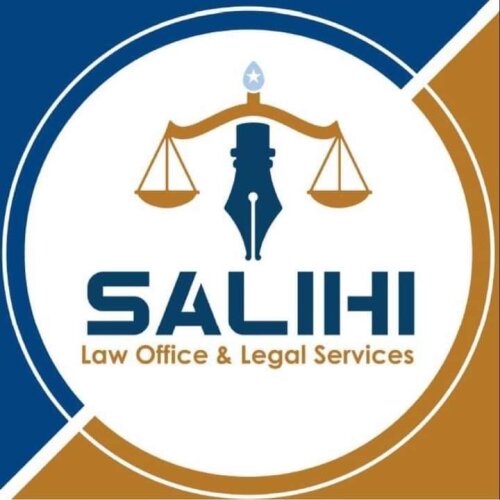About Financial Services Regulation Law in Mogadishu, Somalia
Financial services regulation in Mogadishu, Somalia, is governed by a mix of national laws, regional guidelines, and international standards. The primary aim is to safeguard financial stability, protect consumers, and maintain the integrity of the financial system. The regulatory framework is overseen by the Central Bank of Somalia, which plays an essential role in monitoring banking operations, managing the payment system, and ensuring that monetary policies are effectively implemented throughout the region.
Given Somalia's unique socio-economic and political landscape, financial services regulation also focuses on fostering trust in local and international financial systems while combating challenges such as money laundering and financing terrorism.
Why You May Need a Lawyer
Engaging with financial services inevitably involves navigating complex legal and regulatory landscapes. There are several scenarios where legal assistance in financial services regulation may be necessary:
- Setting up a financial service business, such as a bank, money transfer company, or insurance firm.
- Compliance with local and international finance and anti-money laundering (AML) regulations.
- Resolving disputes with financial institutions regarding loans, deposits, or other banking services.
- Protecting personal or business assets from fraudulent activities.
- Adhering to regulations as fintech or innovative financial service providers.
Local Laws Overview
The legal framework for financial services in Mogadishu emphasizes several key areas:
Licensing and Registration: Firms offering financial services must be registered and licensed by the Central Bank of Somalia to ensure adherence to defined standards.
Consumer Protection: Businesses must provide clear information on terms, ensure confidentiality, and resolve consumer grievances efficiently.
Anti-Money Laundering (AML): Businesses are required to implement measures to prevent and report activities related to money laundering and terrorist financing.
The regulatory landscape is evolving, with efforts aimed at harmonizing local laws with international best practices to create a more transparent and efficient business environment.
Frequently Asked Questions
What is the role of the Central Bank of Somalia in financial regulation?
The Central Bank of Somalia oversees the financial system, implements monetary policy, and ensures regulatory compliance among financial institutions.
How do I ensure my business complies with AML regulations?
Implement a robust compliance program, conduct regular risk assessments, train employees, and report suspicious activities to the relevant authorities.
Can foreign businesses offer financial services in Mogadishu?
Yes, but they must register and comply with local regulations as stipulated by the Central Bank of Somalia.
What are the penalties for non-compliance with financial regulations?
Penalties may include fines, suspension of licenses, or legal action depending on the severity of the violation.
How can consumers protect themselves against fraudulent financial activities?
Stay informed, verify financial service providers' licenses, and report any suspicious activities to the authorities.
What recourse do I have if a bank mishandles my account?
You can file a complaint with the bank, and if unresolved, escalate the matter to the Central Bank's dispute resolution mechanism.
Is digital and mobile banking regulated?
Yes, digital and mobile banking services are subject to regulatory oversight to ensure security and compliance with AML laws.
What documentation is required to start a financial service business?
Documentation typically includes business registration, shareholder information, financial health statements, and a detailed business plan.
Are there incentives for fintech startups?
Somalia offers incentives to foster innovation, including potential tax breaks and grants for fintech developments.
How often do financial regulations change in Mogadishu?
The regulatory framework is dynamic, with updates to laws and guidelines occurring as needed to address emerging financial challenges and opportunities.
Additional Resources
The following resources can be helpful for individuals seeking more information or assistance regarding financial services regulation:
- Central Bank of Somalia
- Somalia Financial Services Association (SFSA)
- Ministry of Finance, Somalia
- Financial Services Providers Network (FSPN)
Next Steps
If you require legal assistance in financial services regulation, consider these steps:
- Identify and consult with qualified legal practitioners specializing in financial services regulation.
- Gather and organize relevant documents and information pertaining to your situation.
- Stay informed about any changes in regulations that may affect your interests or obligations.
- Consider reaching out to the Central Bank of Somalia or local business associations for guidance.
Lawzana helps you find the best lawyers and law firms in Mogadishu through a curated and pre-screened list of qualified legal professionals. Our platform offers rankings and detailed profiles of attorneys and law firms, allowing you to compare based on practice areas, including Financial Services Regulation, experience, and client feedback.
Each profile includes a description of the firm's areas of practice, client reviews, team members and partners, year of establishment, spoken languages, office locations, contact information, social media presence, and any published articles or resources. Most firms on our platform speak English and are experienced in both local and international legal matters.
Get a quote from top-rated law firms in Mogadishu, Somalia — quickly, securely, and without unnecessary hassle.
Disclaimer:
The information provided on this page is for general informational purposes only and does not constitute legal advice. While we strive to ensure the accuracy and relevance of the content, legal information may change over time, and interpretations of the law can vary. You should always consult with a qualified legal professional for advice specific to your situation.
We disclaim all liability for actions taken or not taken based on the content of this page. If you believe any information is incorrect or outdated, please contact us, and we will review and update it where appropriate.











